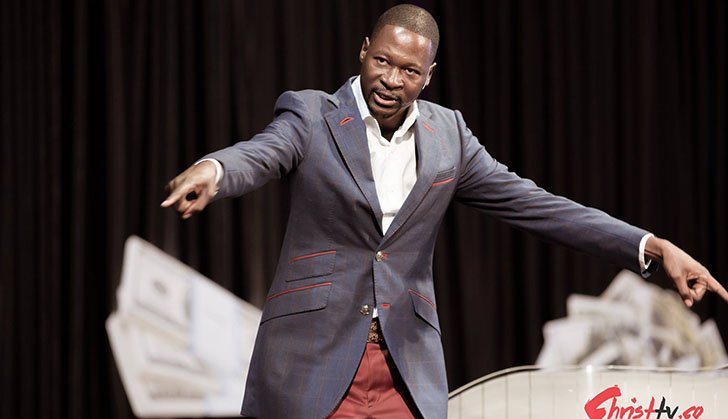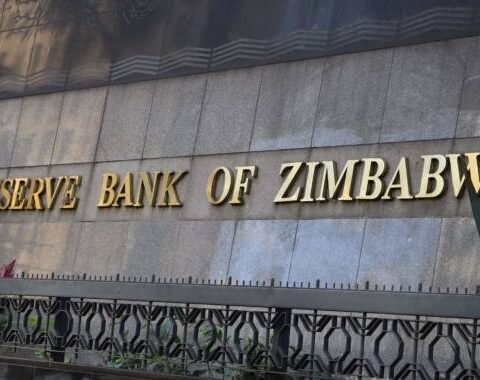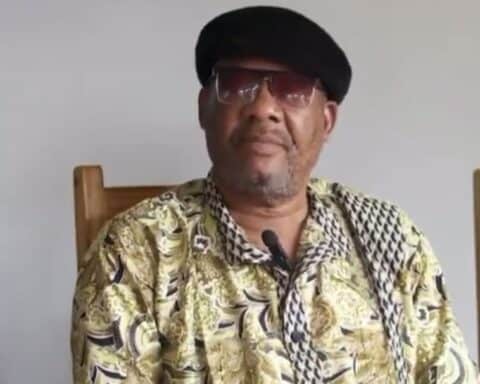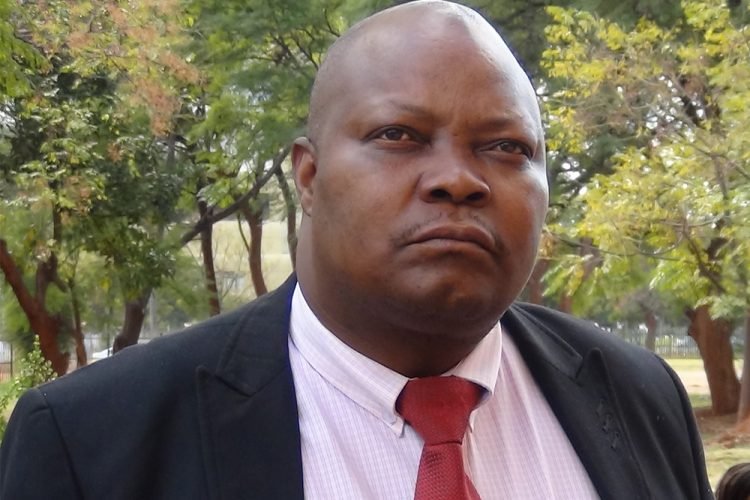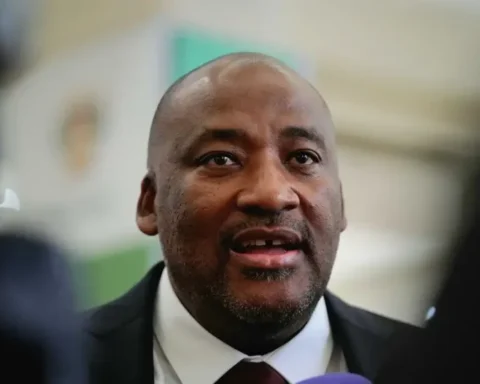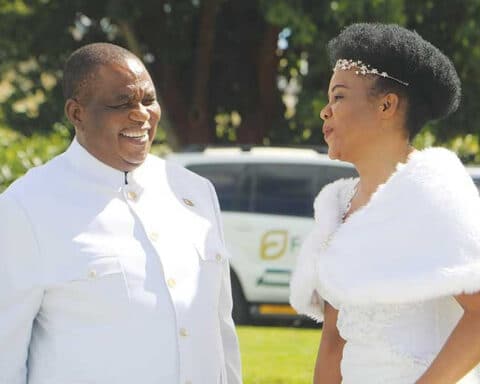Emmanuel Makandiwa’s comments have re-ignited a debate about the ‘politicisation’ of the clergy, some Zimbabweans may think he is wrong for involving himself in the current politics of Zimbabwe.
Should Makandiwa comment on, or praise the current president of Zimbabwe? Is he a prophet or just another political campaigner wearing a mitre?
Given the praise he showered Munangagwa with at his Easter conference some Zimbabweans may see Makandiwa’s move as a controversial ecclesiastical statement of his own. Some may be tempted to cite an understandable concern that parishioners will be alienated by clergy taking sides in political debates. Some may argue for church leaders to display “complete political neutrality, so that politicians can focus on the earthly things whilst the Church can focus on its own health and wellbeing and, of course, the divine.
Now this seems to me to be a fundamental misunderstanding of the role of the Church. Of course, church leaders should not be waving party membership cards around and castigating anyone of another political creed, but “complete political neutrality” implies that they should also refrain from calling out government policies that are wrong, maybe even deeply morally wrong.
To be political is to care about how society is run and how its people are treated. The Bible is very clear that God cares deeply about how we treat one another, and equally clear that those in authority are placed there by him – but that they need to be held to account for their actions.
The problem is that some amongst the Christian churches believe that faith should be private; internalised and focussed on a disembodied escape from this world. This notion has its roots in the ancient Greek Platonic concept of the body and soul being separate entities and was cemented by the Enlightenment’s insistence that faith and reason are opposite and incompatible. It is so entrenched in our present-day-mindset that it is massively difficult for us to think outside of it.
In reality, the Church is hugely involved in practical measures to tackle the evils of poverty and neglect. Church communities have stepped into the gap left by the state in Zimbabwe to run charities, feed the hungry and other services at the hearts of their neighbourhoods. It is the outworking of God’s love for his people.
Many of those clamouring for Makandiwa not to shower Mnangagwa with praise would have been happier seeing him castigating or criticising the Munagagwa administration maybe because it is more fashionable to do so.
These church leaders be they true prophets or not, irritating or not. We cannot deny that they have been involved in the day-to-day running of people’s lives in many ways than political. Interestingly, no one bats an eyelid when these Church leaders contribute to their communities: everyone sees their relevance due to the practical role they play. (They may not be supporting the political party that some might have preferred)
Indeed, we must be wary of labelling their actions as ‘politics’ because a false divide may be established between those who think of the church’s role as otherworldly and those whose faith is grounded in the gritty reality of local communities. But these aims should not be separated. God’s kingdom is physical as well as spiritual. The early Christians in Acts came together to ensure that they “gave to anyone who had need”. And, as part of the same process, “the Lord added to their number daily those who were being saved.” (Acts 2:45, 47)
Ultimately, politics falls within the scope of ‘all things’ that Christ creates, redeems, and rules. Instead of gritting our teeth and enduring this world until we can escape elsewhere, the Bible talks of the hope of a creation of a new heaven and a new earth. Through Jesus’ death and resurrection, we see that God has chosen not to withdraw from the mess that his creation has made, but to break into it, in human form, and to act from within the world to put it to rights. If Jesus has not withdrawn from our world, it is reasonable to assume that even for Zimbabwe prophets, pastors and priests should follow that example.
I would like to believe that my Christian friends are not seeking salvation from the earth but of it. Jesus rolled up his sleeves and washed the disciples’ feet, and he asks us to work alongside him, to reflect him into his world, to carry out acts of mercy and justice and to draw people to him. This will sometimes mean that a politician will have to endure a rebuke from prophets and pastors. It can be sobering when they at times shower politicians with praise.
Zimbabwe has a watershed election coming up in 2023, and most of the leaders of the big Pentecostal and prophetic churches in Zimbabwe seem to be backing the incumbent President. (Two are already Ambassadors and of course Passion Java is openly campaigning for Mnangagwa)
For many months already, people have been stewing over what many believe will be the most vitriolic election year Zimbabwe has seen in some time.
I’ve never believed the hype that tends to come every election cycle from people in opposition or government who declare each subsequent election to be “the most important election in our lifetime.”
But as I survey the landscape from my vantage point, I’m inclined to believe this one just might be one of the ugliest.
During times like these, people of faith need the guidance of their pastors. But over the years, I’ve seen a couple of approaches by a few Christian leaders that just aren’t helpful.
On the one hand, some completely ignore the political landscape on the basis that “I don’t talk about politics.” I can understand the desire of not getting drawn into debates over a kingdom that we know is temporary.
But there’s a big difference between refusing to go down the political rabbit hole and acting as though the coming elections aren’t a reality.
When the early Christians said, “Jesus is Lord, not Caesar,” their intent wasn’t to isolate faith from politics, but rather, to put each in its proper place. They hoped to emphasize their devotion to the king was to be defined by the King of kings.
On the other end of the spectrum are hyper-partisan pastors who call out those they perceive to be less-than-desirable candidates and passionately distribute literature to persuade their congregation toward their preferred candidates.
In the middle are people who want to be faithful disciples of Jesus in the voting booth by thinking critically about all the issues involved and how their vote impacts those issues.
But to provide people the guidance they need, pastors need to strike a balance between ignoring an entire year on the political calendar and looking over the shoulders of our people as they cast their votes.
